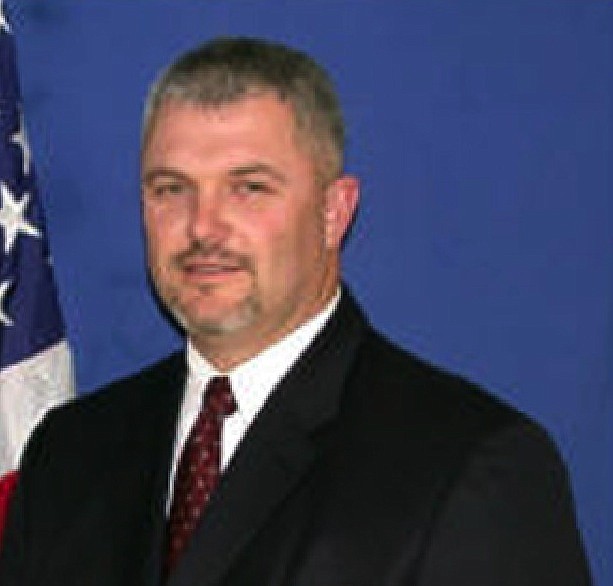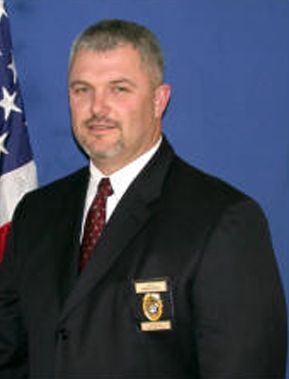A defendant says the captain of the Summerville, Ga., Police Department persuaded him to pay an illegal court cost last month.
Officers arrested Koran Tirai Dyer, 22, of 609 N. Duke St. in LaFayette, on an affray (fighting) charge in June. Police say he and four other men got tangled up in a fight in Summerville. Dyer says he was never involved, that he just happened to be at the scene of the crime.
On Sept. 9, he was due in Chattooga County State Court. But before going in, he says, Summerville Police Capt. Harold Tucker talked to him in the hallway.
Tucker told Dyer that, if he paid $1,000 in court costs, state Solicitor Sanford "Buddy" Hill would "nolle prosequi"- decline to prosecute - the case. At the time, Dyer did not know that paying such court costs is illegal.
According to the Official Code of Georgia Annotated 15-13-35, a prosecutor cannot charge money on a case if the court did not find the defendant guilty. And, according to Article 1, Section 1, Paragraph 14 of the Georgia Constitution, nobody can be forced to pay money in a criminal case unless that person has been convicted.
Dyer's audio recording of Tucker and Dyer's conversation in the hallway on Sept. 9 gives this account:
"Listen to me," Tucker says on the recording. "Right now I know this: If you don't want to do it, it's going to go another way. They are going to prosecute you. They are going to find you guilty."
"But I don't understand that," Dyer said. "Like, they told me that if I wasn't fighting then - "
"They ain't going to know that," Tucker responded. "All they going to know is that it was dismissed. That's all they are gonna know: It was dismissed. This is the way to go. I ain't lying to you. This is your only way to go."
Later in the conversation, Tucker explained to Dyer what "nolle prosequi" means.
"This right here is just like if you went to court and was pronounced not guilty," he said. "You know what I'm saying? It's the exact same thing."
"But it's still on my record, though," Dyer responded.
"No."
On Aug. 19, State Court Judge Sam Finster told the Times Free Press that he had been letting people pay money on unprosecuted cases for years. He said he didn't know such practice is illegal.
Then, on Sept. 11, two days after Dyer's case played out, Finster would tell the newspaper that he stopped allowing defendants to pay money on unprosecuted cases. He said he put a stop to it after his Aug. 19 conversation with a Times Free Press reporter.
But, on Sept. 11, Dyer paid the money. Before doing so, Tucker told Dyer why he should trust the police captain's advice.
"I've been doing this for four years," he said. "I know what this is going on."
Dyer then told Tucker he felt uncomfortable paying $1,000, a lot of money for the 22-year-old.
"I'm taking care of my mom and my little girl, my daughter," he said. "The situation is, I wasn't even fighting. I wasn't even fighting. I was just there. Like, the whole situation, I didn't do it."
"It's been thrown out," Tucker said, again explaining how this case will be viewed after Dyer leaves the courtroom. "It's been thrown out."
"From my understanding," Dyer responded, "I wasn't supposed to be found guilty. I was just there."
"He would have found you guilty," Tucker said of Finster. "There's no doubt in my mind. 100 percent. From 0 to 100, he would have found you guilty."
On Friday, Finster said that he did not know that Tucker ever had a conversation with a defendant about court cases. He said Tucker comes to court as a "liaison" between the Summerville Police Department and the state solicitor. If someone is arrested in Summerville, Finster said, Tucker can recommend to the solicitor how to handle the case.
Finster declined to comment about whether it is inappropriate for a police captain to tell a defendant to pay illegal court costs.
The judge also could not say whether Tucker is allowed to tell Dyer that Finster would find him guilty "100 percent" of the time.
"I don't know about that authority," Finster said. "That's outside the scope of what I do. He may have. I don't know. That authority would come from his chief."
Summerville Police Chief Stan Mosley said Friday he could not comment on Tucker's actions in the Dyer case.
But he did say that his officers usually do not offer legal advice. In July, Summerville officer Josh Brock lost his job after his bosses found out that he helped write "Uncle Wiggy's Secret Guide to Dealing with the Police," which advised defendants about their Fourth Amendment rights and when they can refuse law enforcement access to their homes.
"Normally, we make the case," Mosley said Friday. "We don't get involved in the legal side, other than our testimonies."
Contact staff writer Tyler Jett at 423-757-6476 or tjett@timesfreepress.com.

